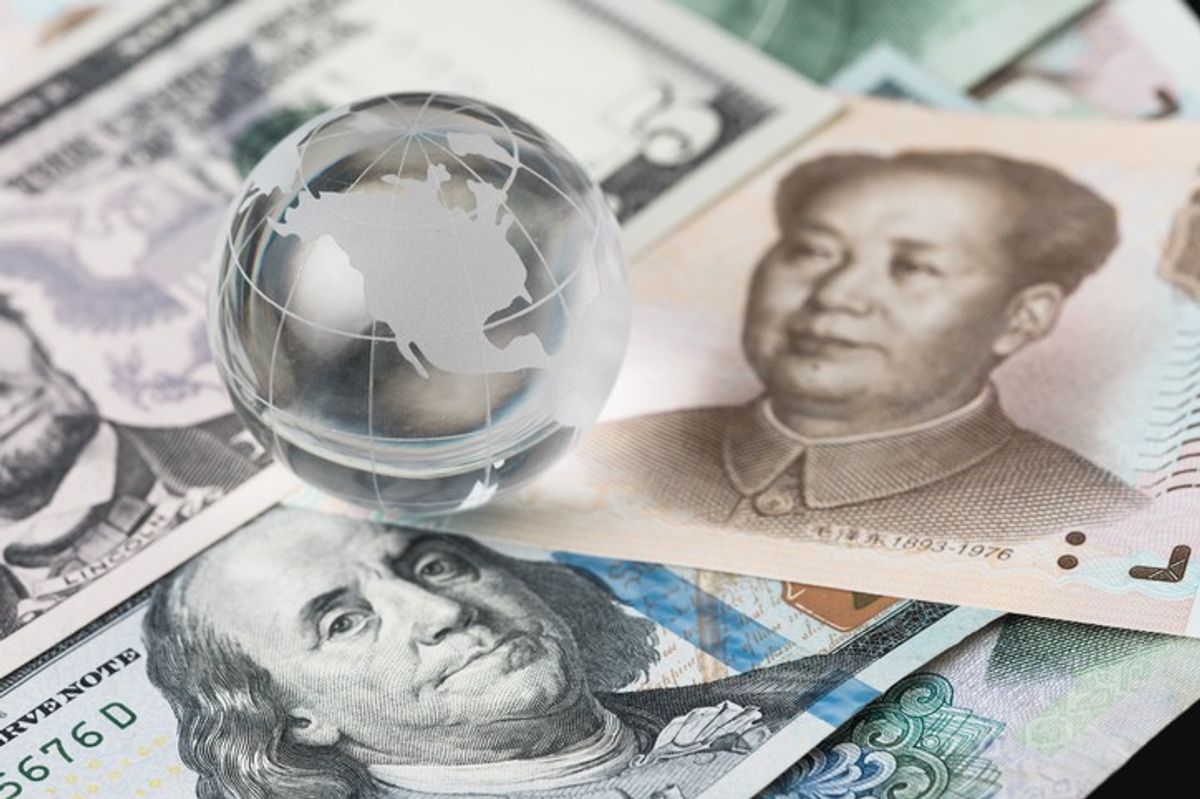In keeping with his America First agenda, President Donald Trump is pushing ahead with the promised new direction in U.S. trade and international economic policy. On July 17, the Trump Administration released a 17-page guideline outlining its ambitious goals for renegotiating the North American Free Trade Agreement (NAFTA), top officials are currently working on a plan to recalibrate U.S. trade policy towards China within weeks, and British International Trade Secretary Liam Fox is in Washington for preliminary talks on a UK-U.S. bilateral free trade agreement.
However, as Trump and his team sketch out their image of a more nationalist policy – which prefers bilateral trade deals over multilateral cooperation – many countries are continuing to push ahead on the type of mega free trade agreements that the administration has thus far rejected. The agreement in principle on the Japan-EU Economic Partnership Agreement (JEEPA) has become one of the most important symbols of this international resolve to continue pursuing trade liberalization with or without the United States.
Unveiled at press conference just days before the G20 economic summit in Hamburg last month, the agreement on JEEPA was not only an impressive success for the deal’s negotiators, it was also a pointed message against the rise of economic nationalism and trade protectionism – most visibly represented by President Trump. As European Commission President Jean-Claude Juncker explained to reporters, the agreement “makes a statement about the future of open and fair trade in today’s world… [and] shows that closing ourselves off to the world is neither good for business, nor for the global economy, nor for our workers.”
Beyond its symbolic value, the free trade zone created by JEEPA is substantial, potentially covering some 40 percent of world trade. The agreement’s compromises are also impressive, especially given the short time frame in which they were negotiated. On the Japanese side, tariffs on agricultural imports from the EU – a highly sensitive issue in Japanese politics – would be cut by almost 85 percent. In addition, Japan agreed to attach geographical indicators on European agricultural goods like Camembert cheese and Prosecco sparkling wine, thus preventing producers of similar products in other regions from using these labels.
On the European side, EU negotiators gave way on automobile imports, pledging to erase tariffs on Japanese auto exports to the European Union within seven years. According to Co-Director of the Center for East Asia Policy Studies at the Brookings Institution, Mireya Solis, “That’s very significant, especially when you think about the fact that the United States, in TPP negotiations vis-à-vis Japan, only agreed to eliminate tariffs on cars in 25 years – and tariffs on trucks in 30 years.”
There are still obstacles ahead for JEEPA. First, the two sides disagree on what sort of structure they want to put in place for investor protection within the free trade zone. Japan prefers the investor-state dispute settlement mechanism – the same system currently used within NAFTA – while the EU wants to create an investor court. However, this issue is hardly insurmountable.
Instead, it is the process of ratifying JEEPA through both the EU parliament and individual national parliaments that will present the most daunting political challenge. The vote to approve the EU-Canada Comprehensive Economic and Trade Agreement in February this year sets a worrying precedent. That trade pact was widely perceived as a relatively straightforward deal, which could be finalized quickly. But in order to win support for the agreement, Canadian negotiators were forced to negotiate both multilaterally with EU negotiators and bilaterally with individual member countries interested in extracting specific concessions. Even after an acceptable deal was finally reached between all these parties, the agreement was almost scuttled in the final EU parliament vote by the tiny Belgian region of Wallonia, which held Belgium’s approval hostage in exchange for further concessions.
However, events like Brexit, President Trump’s decision to withdraw the U.S. from the Trans-Pacific Partnership trade agreement, and his administration’s failure to move forward on the Trans-Atlantic Trade and Investment Partnership with Europe, have galvanized proponents of free trade across the world to redouble their efforts. JEEPA and the subsequent G20 statement in support of free trade – endorsed by all of the group’s members except for the U.S. – are only two examples of an emerging backlash against the forces of economic nationalism.
In Japan, the government of Prime Minister Shinzo Abe is not only forging ahead on JEEPA, it is also planning to lead new talks on how to continue the TPP without the U.S. at the Asia-Pacific Economic Cooperation forum this November. Meanwhile, Chinese President Xi Jinping has rushed to grab the mantle of global economic leadership dropped by President Trump, delivering a fiercely pro-trade and pro-globalization speech at the economic summit in Davos this January and accelerating economic cooperation talks with the EU.
These trends are troubling for the U.S. economically. As mega free trade agreements move forward across the world without U.S. involvement, American exporters risk being sidelined in global markets. In the case of JEEPA, says former Deputy Director of the International Monetary Fund’s Policy Development and Review Department Desmond Lachman, “European agricultural exporters will now enjoy a considerable cost advantage over their U.S. counterparts in the Japanese market.”
However, beyond trade diversion, the prospect of global free trade agreements moving forward without Washington presents a clear threat to core American security interests. Leadership on trade liberalization and economic reform has formed one of the foundational pillars of global – and U.S. – national security since the end of World War II. It has allowed Washington to help write the rules that underpin the international economic order and solidify the U.S. alliance system. It is for this reason that a bipartisan group of eight former defense secretaries wrote an open letter last year imploring congress to ratify the TPP as a deal that was “fundamental to U.S. national security.”
During the campaign and in office, President Trump has argued that such warnings are hyperbole, that the terms of American trade are unfair, and that he will be able to leverage more advantageous bilateral agreements by being “willing to walk away from the table.” So far, much of the world appears ready to let him walk.
Fritz Lodge is a Middle East and international economics analyst at The Cipher Brief. Follow him on Twitter @FritzLodge.












